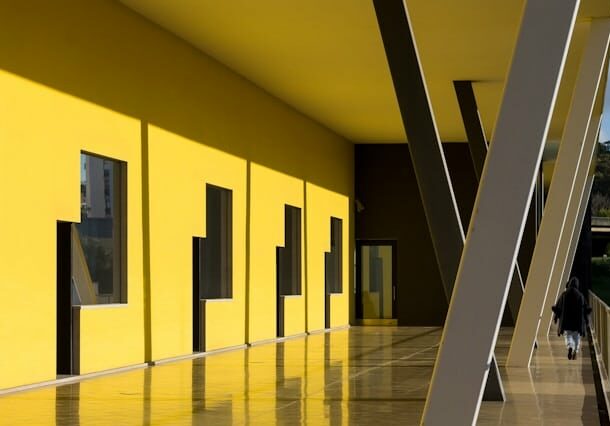Malta is desirable for higher education institutions such as Malta colleges and universities because of the country’s overall blend of academic excellence, a secure and friendly atmosphere, classes being held in the English language, and affordability of tuition fees.
In this guide, we’ll cover all you need to know about higher education in Malta, including an overview of the higher educational system, the list of the best universities in Malta, tuition fees, and how to enroll in a Malta university.
4 Reasons Attend a University in Malta
Public universities in Malta can be excellent choices for advanced studies for four main reasons:
1. A variety of university programs
There is a wide variety of programs and courses for international students at different higher education institutions and universities in Malta. This ensures that students choose a degree that meets their interests and professional objectives and covers business, engineering, medicine, the arts, and sciences.2. Safe environment
The people of Malta are kind and inviting, and the nation itself is stunning and secure. Due to its compact size, the country is very simple to navigate, allowing students to spend their leisure time discovering its breathtaking beaches, important landmarks, and natural marvels.3. Reputable educational system
Public universities and higher education institutions in Malta have a reputable educational system and are members of the European Union. As a result, students will have access to a top-notch education as well as scholarships and other possibilities inside the EU.4. Cost of living and tuition fees
Malta is a cheaper study location than other European nations due to its reduced living costs and tuition. In addition to being able to work part-time while attending school, English is widely spoken, making it easier to blend in and connect with the community.Malta Higher Education System

- Universities: The University of Malta and the American University of Malta are the two top universities in Malta.
- Colleges: There are a number of colleges in Malta, including the Mediterranean Institute of Management, the Institute of Tourist Studies, and the Malta College of Arts, Science, and Technology (MCAST).
The European Credit Transfer and Accumulation System (ECTS), a standard system used throughout the European Union, is the basis on which degrees are conferred in Malta. Under this system, a full-time worker’s workload is generally 30 credits per semester, with each academic year worth 60 ECTS credits.
The Bologna Process, a European attempt to reform higher education, is used to establish a more unified and uniform system throughout the continent.
The three levels of education that form Malta’s higher education system are bachelor’s, master’s, and doctorate degrees. Depending on the school and the field of study, each degree program has a different length.
- Bachelors: Depending on the curriculum, bachelor’s degrees generally take three to four years to complete.
- Masters: A bachelor’s degree is often required for admission to master’s programs, which typically take one to two years to complete.
- Doctorate or Ph.D.: The highest academic degree is a doctorate, or Ph.D., which typically takes three to five years to accomplish.
The 8 Best Universities in Malta in 2025
Here’s the list of universities in Malta with the best ratings:
1. University of Malta
The University of Malta (UM), founded in 1769, is Malta’s biggest and oldest institution. More than 200 programs, including degrees in the arts, sciences, engineering, medicine, dentistry, law, business, and education, are available at the undergraduate and graduate levels at UM.
UM is a member of the European University Association and is accredited by the Malta Further and Higher Education Authority. Almost 80 different nations are represented among the expanding number of foreign students at UM, which fosters a dynamic and multicultural academic environment. Students have access to contemporary amenities and resources thanks to UM’s main campus in Msida as well as other campuses and centers located all around Malta.
- Minimum of 1,000 USD per year.
- Bachelor’s degree: €7,000–€12,000 for non-EU/EEA students
- Master’s degree: €10,000–€20,000 for non-EU/EEA students
- Ph.D.: €7,000–€15,000 for non-EU/EEA students
- Medium of instruction: English
- Prestigious specialties: Medicine, Dentistry, Law, Computer Science, Artificial Intelligence, and Engineering.
2. American University of Malta
In Cospicua, Malta, is a private, authorized institution called the American University of Malta (AUM). American University of Malta has received accreditation from both the Accreditation Council for Business Schools and Programs and the Maltese National Commission for Further and Higher Education (ACBSP).
With students from more than 40 nations, American University of Malta’s international student population is expanding, fostering a varied and multicultural academic environment. Students at AUM have access to cutting-edge facilities and services at the university’s contemporary campus, which is situated in Malta’s historic Three Cities neighborhood.
- Undergraduate: €2,500–€3,500 per semester on average
- Masters: €2,350–€4,450 per semester on average
- PhD: €3,000–€5,000 per semester on average
- Medium of instruction: English
- Prestigious specialties: Business Administration, Hospitality and Tourism Management, and Engineering.
3. Malta College of Arts, Science and Technology (MCAST)
Located in Paola, Malta College of Arts, Science and Technology is an excellent choice for those seeking vocational and technical education. MCAST offers 180 full-time and more than 300 part-time vocational courses. You can get different certificates at MCAST, from vocational certificates to Doctoral degrees.
It consists of different institutes, which include: the Institute of Applied Sciences, Institute for the Creative Arts, Institute of Engineering and Transport, Institute of Business, Management and Commerce, Institute of Community Services, Institute of Information and Communication Technology, Gozo Campus, and Pathway to Independent Living.
- Tuition fees for a one-year program range from €5,400–€6,700
- Tuition fees for a two-year program range from €6,500–€8,500
- Tuition fees for a three-year program range from €10,000–€19,500
- Tuition fees for a four-year program are around €26,000
- Medium of instruction: English
- Prestigious specialties: Science, Computer Electronics, and Engineering.
-
4. St. Martin’s Institute of Higher Education
Known for its personalized approach to education, St. Martin’s Institute of Higher Education is a preferred destination for international students pursuing higher studies in Malta. This is a private educational establishment that adheres to Delors’ principles in teaching.
St. Martin’s Institute of Higher Education attained its Affiliate Institution Status by the University of London, and it’s one of 28 such institutions in the world.
- Yearly tuition fees: From €2400 to €6,200, depending on the program
- Medium of instruction: English
- Prestigious specialties: Computer Science, Game Design, and Computing
5. Queen Mary University of London (QMUL) in Malta
Queen Mary University of London‘s Malta campus brings British higher education to the island, providing international students with access to a world-class curriculum and Mediterranean lifestyle. On top of that, this university is at the forefront of research and offers clinical experience.
This university was accredited by the General Medical Council and other medical councils from all over the world.
- The average tuition for the Foundation program is between €2,350 and €4,450 per semester
- Medium of instruction: English
- Prestigious specialties: Medicine
6. STC University
Founded in 1997, STC University offers a range of programs to international students. STC University is focusing on career-oriented education and research opportunities. Not only does this university has a variety of different courses and learning programs, but it also has highly advanced training facilities which will help you learn from experience.
What makes STC University unique is its corporate training, thanks to its different partnerships. The main focus of STC University’s courses is quality and professionalism, and you’re guaranteed to get the best bang for your buck.
- Yearly tuition fees: From €5,000 to €10,000, depending on the program
- Medium of instruction: English
- Prestigious specialties: Business Management, Computing, and Marketing
7. Mediterranean School of Business
The private institution known as the Mediterranean School of Business (MSB) in Malta offers postgraduate business degrees. The MSB has received accreditation from the Accreditation Council for Business Schools and Programs (ACBSP) and the Malta Further and Higher Education Authority (MFHEA). With more than 25 different nationalities represented among its student body, MSB fosters a multicultural and varied learning environment. Due to MSB’s central location in Malta, students have easy access to both a strong business community and a vibrant cultural environment.
- Yearly tuition fees: €13,500 – 15,000, depending on the program
- Medium of instruction: English
- Prestigious specialties: MBA, Masters in Finance, and Master in Marketing.
8. Advenio Academy
Advenio eAcademy is an e-learning institution offering flexible and accessible education options for international students. It was founded in 2013 in Malta with the idea of removing the constraints of physical premises. Advenio Academy also participates in the Erasmus+ program, and it’s a great opportunity to learn from the comfort of your home. It’s partnered with different universities across Europe.
- Average €3,000–€5,000 per year for international students. The average tuition fee for undergraduate, master’s, and PhD programs is €2,950–€3,950 per semester.
- Medium of instruction: English
- Prestigious specialties: Entrepreneurship, Marketing, and Business
When considering universities in Malta for international studies, these institutions offer diverse academic opportunities and a welcoming atmosphere.
The best colleges and higher education institutions in Malta provide a variety of courses and programs. Malta is a desirable study location for international students coming from the EU or non-EU nationals who need to obtain a study visa.
How to Enroll into Malta Universities

- Find a University and a Program: Do some research on the many universities and programs offered in Malta to choose one that best meets your requirements and interests.
- Application: Fill out the online application and upload all necessary materials, including academic transcripts, a personal statement, letters of recommendation, and proof of English language competency. EU nationals typically pay an application cost of between €23 and €50. However, non-EU citizens may pay a higher amount, between €95 and €125.
- Admissions Decision: The institution will determine your admission after receiving your application. Although certain schools may require more time, the admissions process typically takes four to six weeks.
- Acceptance and Payment: If you are accepted, the institution will send you an acceptance letter, which you must accept by paying either a deposit or the entire tuition cost. The window for accepting the offer and making the deposit is normally one to two weeks. However, there may be differences depending on whether the applicant is from the EU or not.
- Orientation: Most universities in Malta provide orientation events for incoming students before the start of the academic year. This is a chance to get prepared for your course, meet students, and become comfortable with the campus.
The application deadlines for students from the EU are often in July, whereas those for students from outside the EU are typically in April or May. Therefore, it’s important to confirm the dates for each university’s application process.
How to Get a Malta Student Visa
To attend a university or any other higher education institution in Malta as a foreign student, you need to obtain a Malta study visa.
Students from EU countries don’t need to apply for a Malta study visa, but in case a program lasts more than 90 days, it’s vital to apply for a prolonged stay at the Department of Citizenships and Expatriate Affairs.
Non-EU nationals, similarly, don’t need to apply for a Malta student visa if they are planning to stay for only three months. If the program lasts more than 90 days, non-EU citizens need to get a temporary residence permit to extend their stay.
If you’re a student who needs a Malta study visa, you need to apply for these Schengen visas:
- Schengen Type D Visa: This is a long-term visa that allows students to stay for a program that’s longer than three months.
- Schengen Type C Visa: This is a short-term permit and using this you can stay for three months in Malta. If you need to extend this, you can apply for temporary residence.
Students can apply for a Malta study visa through an online portal. Required documents for a Malta study visa include: a visa application form, valid passport, travel itinerary, accommodation proof, insurance, financial evidence, and visa fee payment.
Required Documents for Enrolling into Malta Universities

- Academic transcripts: You must present your academic records from your previous educational institution. Your transcripts need to reflect your overall GPA as well as the grades you earned in each subject.
- English proficiency: Providing evidence of your English language skills is required if English is not your first language. The minimum needed test scores from examinations like the TOEFL, IELTS, or other tests of a similar kind may be included in this.
- Recommendation letters: Several colleges in Malta want letters of support from former instructors or employers. These letters ought to shed some light on your prospects for academic or professional success.
- Personal statement or essay: Several colleges in Malta may require you to submit a personal statement or essay. You get the chance to discuss your personal driving forces, objectives, and achievements with the admissions committee at this time.
- Identification: You will be required to present a copy of your passport or other forms of identification to establish your identity.
- Application charge: To process your application, the majority of institutions in Malta charge a fee. Depending on the institution and program, the charge may change.
English Language Requirements for Studying in Malta
Program and institution-specific language requirements may vary, but generally speaking, students must provide evidence of their English language competency through the TOEFL or IELTS.
For example, the University of Malta requires overseas students to have a minimum IELTS score of 6.5 or a TOEFL iBT score of 79 (or equivalent) in order to be admitted to the majority of its undergraduate and graduate programs. Some foundation courses may require scores as low as 5.5 in IELTS and 61 in TOEFL. It’s vital to examine the precise criteria for your selected program since some might have greater prerequisites.
Similar language requirements may also apply to other universities and institutions in Malta. Prior to completing an application, it is imperative to contact the organization you wish to attend.
Cost of Studying at Malta Universities
Many variables, including the level of study, the institution, the course of study, and the student’s place of origin, might affect the price of attending a university in Malta. There are also some Malta college and universities without application fees for EU citizens.
Here’s the table breaking down the cost of studying in Malta:
Type of institution | Cost of studying in Malta |
Undergraduate studies | From €1,100 to €14,000 for non-EU citizens (EU citizens don’t pay tuition, but there might be additional fees ranging from €1,100 to €2,000) |
Postgraduate studies | From €10,000 to €25,000 for non-EU citizens (EU citizens don’t pay tuition) |
Medicine, dentistry, and veterinary medicine | Approximately €26,000 |
Doctoral studies | From €5,500 to €11,000 |
It’s important to keep in mind that some programs, including those in medicine, dentistry, and veterinary medicine, could have greater tuition costs than others. For example, the yearly tuition fee for a dentistry student at the University of Malta is approximately €26,000. Extra costs for registration, administration, and other services may also be charged by some colleges.
Malta also provides several scholarship options for students from other countries for their publicly funded universities and private colleges. International students can apply for scholarships from the Maltese government and a number of private organizations based on their academic performance and financial need. The Malta Government Scholarship Plan, the Erasmus+ Program, and the Marie Sklodowska-Curie Actions are a few of the most well-known scholarship schemes available to international students in Malta.
Malta Academic Year Timetable
At the Malta college and universities, the academic year is divided into two semesters and normally lasts from October to June. An example schedule of the University of Malta’s academic year is shown below:
October
- First week: New student orientation
- Second week: Classes start
- End of the month: Several courses have midterm examinations.
December
- Third week: Christmas holiday break begins
January
- First week: Lectures resume
- End of month: End of first semester exams
February
- First week: The second semester begins
March
- End of month: Mid-term exams for some courses
April
- First week: Easter break begins
May
- First week: Lectures resume
- End of month: End of academic year exams begin
June
- End of month: End of academic year exams end
July-September
- Summer break
Please be aware that this schedule is simply an example and could change based on the particular program of study and the university’s academic calendar. For the most recent details on the academic schedule, it is always sensible to check the university’s official website or academic calendar.
As part of our commitment to providing transparent and reliable services, we are proud to be a licensed agent in Malta, holding the official license number AKM-AGEN. This certification demonstrates our dedication to the highest standards in the investment migration industry and further enhances our ability to offer expert guidance and support to our clients.
Frequently Asked Questions about Universities in Malta
What are the best universities in Malta for international students?
These are the best universities in Malta for international students:
- University of Malta
- American University of Malta
- Malta College of Arts, Science and Technology (MCAST)
- St Martin’s Institute of Higher Education
- Queen Mary University of London (QMUL) in Malta
- STC University
- Advenio eAcademy
- Mediterranean School of Business
Is studying at universities in Malta free?
Yes, education at public universities is free for those who have Malta citizenship and residency.
Citizens coming from other European Union countries can also study free of cost in Malta.
Students from non-EU countries will have to pay tuition fees starting at €3,000 per year. This might change depending on the university and the studied subjects.
How many universities are in Malta?
There are a total of eight universities in Malta that offer a variety of programs for international students too.
Is Malta good for international students?
Due to its peaceful environment, economical education, exemplary education system, and many opportunities in the growing economy, the universities in Malta for international students are a great choice.
Can international students study in Malta without IELTS?
Yes, international students can study in Malta without an IELTS certificate. It’s important to speak English at least at conversational level since Malta is an English-speaking country.
How can I apply to universities in Malta without paying an application fee?
Unfortunately, applying to a university in Malta without paying an application fee is incredibly hard. You would need to apply to a university that doesn’t have an application fee or during promotional periods.
Do universities in Malta teach in English?
Apart from the medium of instruction being English in most Maltese universities, there are also language courses available at some institutions that teach English as a language.


